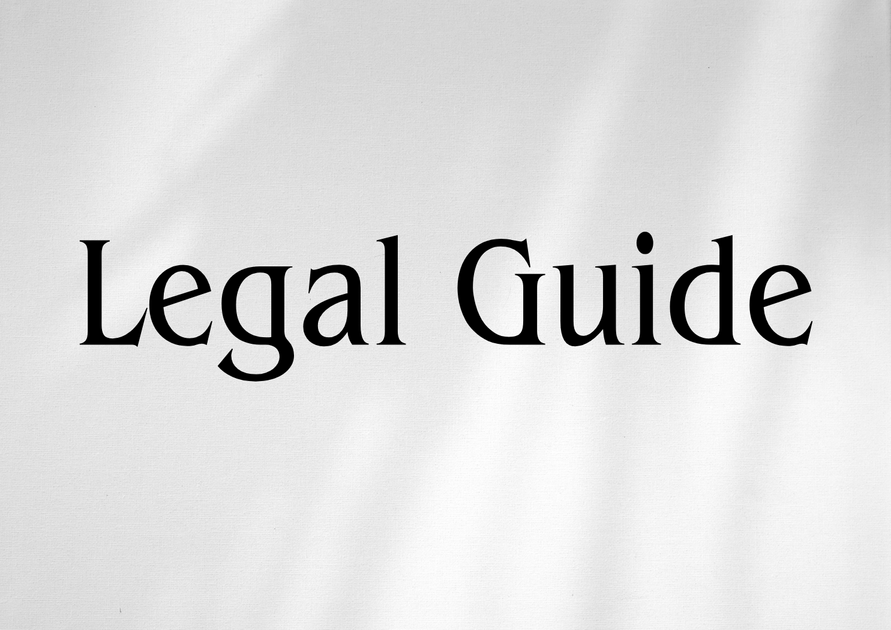Introduction: Elevating the Role of Legal Counsel in UAE Arbitration
As the United Arab Emirates continues to reinforce its status as a premier global business hub, arbitration has emerged as a preferred dispute resolution mechanism for both local and international parties. The sophistication and rapid evolution of UAE’s arbitration framework—driven by significant legislative reforms, notably Federal Law No. 6 of 2018 on Arbitration and its subsequent updates—has elevated the professional responsibilities and expectations placed on legal counsel. For businesses, executives, and legal practitioners operating in the Emirates, a precise understanding of the legal counsel’s role in arbitration is now more crucial than ever, especially in the wake of recent legal developments up to 2025.
This article provides an authoritative legal analysis of the legal counsel’s duties, risks, and best practices throughout arbitration proceedings under UAE law. By examining key regulatory updates, offering consultancy insights, and sharing practical guidance, we aim to empower decision-makers to work strategically with counsel and reduce the risks of adverse arbitral outcomes. This resource is an essential handbook for navigating UAE commercial disputes under the evolving legal landscape.
Table of Contents
- The Legal Framework Governing Arbitration Proceedings in the UAE
- Defining the Legal Counsel’s Role Across Each Arbitration Stage
- Recent UAE Law Updates and Their Impact on Legal Counsel Duties
- Strategic and Practical Guidance for UAE Legal Counsel
- Comparative Table: Old Versus New UAE Arbitration Laws
- Case Studies and Hypothetical Scenarios
- Risks of Non-Compliance and Effective Mitigation Strategies
- Conclusion and Forward-Looking Perspective
The Legal Framework Governing Arbitration Proceedings in the UAE
Core Laws and Decrees
UAE’s arbitration regime is anchored in Federal Law No. 6 of 2018 on Arbitration, further supplemented by various Cabinet Resolutions and Ministerial Guidelines. The law mirrors key principles from the UNCITRAL Model Law, thus aligning the UAE with international best practice and rendering its arbitration awards more readily enforceable both domestically and abroad.
Major sources of arbitration law include:
- Federal Law No. 6 of 2018 on Arbitration
- Civil Procedure Code (Federal Law No. 11 of 1992, as amended)
- Relevant Cabinet Resolutions (latest: Cabinet Resolution No. 57 of 2018 on the Regulation of Federal Law)
- Arbitration Rules of leading establishments (e.g., DIFC-LCIA, ADGM, Dubai International Arbitration Centre [DIAC])
Institutional and Ad Hoc Arbitration in the UAE
Practitioners in the UAE must distinguish between institutional (administered) and ad hoc arbitration. The governing statutes and rules of each forum shape procedure, timelines, and the level of court involvement, all of which directly influence the legal counsel’s strategy and responsibilities.
Enforcement and Judicial Supervision
Crucially, while the Emirati arbitration law upholds the principle of party autonomy and restricts unwarranted court interference, the judiciary retains oversight of matters such as the enforcement and annulment of arbitral awards. Legal counsel must be adept at anticipating and managing such judicial intersections, with recent trends in UAE court practice underscoring the need for rigorous legal preparation.
Defining the Legal Counsel’s Role Across Each Arbitration Stage
1. Pre-Arbitration Risk Assessment and Advisory
Before a dispute escalates to arbitration, a legal counsel’s first task is advisement:
- Evaluating the scope and enforceability of arbitration clauses in contracts
- Advising parties on the suitability of arbitration compared to litigation or mediation
- Risk assessment based on the choice of law, seat, language, and arbitration rules
- Client education regarding costs, timeline, confidentiality, and enforceability of arbitral awards
In light of Cabinet Resolution No. 57 of 2018, legal practitioners must also ensure that parties comply with any pre-arbitral conditions or procedural prerequisites.
2. Commencement and Case Management
Once a client opts for arbitration, legal counsel becomes the strategic architect of the case:
- Drafting notices of arbitration and corresponding pleadings in strict adherence with statutory requirements
- Navigating appointment of arbitrators under Article 10 of the UAE Arbitration Law
- Advising on expedited or emergency proceedings where time is of the essence
- Facilitating early evidence gathering, document retention, and witness preparation (critical post-2021 amendments enhancing disclosure obligations)
3. Hearing and Evidence Presentation
During hearings, successful arbitration often hinges on sophisticated advocacy and procedural mastery:
- Presenting opening statements and legal submissions aligned with UAE law and institutional rules
- Managing expert evidence and cross-examination, mindful of recent restrictions (per Federal Law No. 6 of 2018, Art. 34 and Art. 35)
- Ensuring translation and interpretation accuracy for non-Arabic evidence
- Addressing issues of confidentiality and privilege in line with evolving legal norms
4. Post-Award Enforcement and Annulment Proceedings
The legal counsel’s obligations do not end with the final arbitral award. Post-award complexities demand:
- Filing for enforcement in the competent UAE court (Article 55-59, Federal Law No. 6 of 2018)
- Defending against annulment claims, particularly where allegations of procedural irregularity arise
- Advising cross-border parties on enforcement under New York Convention protections (UAE is a contracting state)
Strategic Consultancy Insight:
Legal advisors should maintain a detailed compliance checklist for every stage, integrating statutory requirements, case deadlines, and proactive risk mitigation measures. (See visual suggestion: “Arbitration Process Flow Diagram – Legal Counsel’s Checkpoints”.)
Recent UAE Law Updates and Their Impact on Legal Counsel Duties
Highlighting Key Amendments
Several recent legislative updates have intensified the sophistication demanded of UAE legal counsel in arbitration:
- Cabinet Resolution No. 75 of 2021: Streamlines document discovery obligations and clarifies the interplay between institutional rules and UAE procedural law.
- Federal Decree-Law No. 15 of 2020: Enhances court support in evidence gathering and enforcement, particularly for interim measures ordered by arbitral tribunals.
- Developments in Ministry of Justice Guidelines (2023-2024): Elevates standards for arbitrator impartiality and party disclosure.
Impact on Legal Practice
These changes require counsel to:
- Take a more active stance during pre-arbitral negotiation to safeguard enforceability of awards.
- Enhance their capabilities in collating evidence and anticipating challenges to an arbitrator’s impartiality or procedural fairness.
- Adapt pleadings and document submissions to updated admissibility standards and timelines.
- Adopt new compliance strategies for cross-border awards and interim measures, leveraging additions to UAE’s Civil Procedure Code (2023 revision).
Strategic and Practical Guidance for UAE Legal Counsel
1. Drafting Enforceable Arbitration Agreements
UAE courts and tribunals scrutinize arbitration agreements for clarity, capacity, and conformity with local mandates—defective clauses may cause enforceability issues or even jurisdictional challenges.
Consultancy Tip: Always specify seat, language, number of arbitrators, governing law, and consider institutionally pre-approved templates. Avoid vague or inconsistent references to dispute resolution procedures. (Suggested Visual: “Compliance Checklist for Arbitration Clause Drafting”.)
2. Managing Cross-Border and Multijurisdictional Disputes
With the UAE’s increasing integration in global commerce, legal counsel must anticipate jurisdictional clashes, including recognition of foreign-seated awards (as per the 1958 New York Convention). Robust knowledge of conflicting legal systems and language barriers is imperative, particularly as courts may require authenticated translations or dual-language submissions.
3. Litigation Risks: Strategies to Minimize Annulment
UAE law defines exclusive annulment grounds (e.g., invalid arbitration agreement, due process violations, excess of authority). Counsel must rigorously avoid missteps in appointment, notification, and evidence handling. Familiarity with the latest Federal Judicial Council decisions is essential for reducing the risk of an award being overturned.
4. Proactive Evidence Management
Following Cabinet Resolution No. 75 of 2021, documentation and disclosure standards are more rigid, requiring:
- Early identification of documentary gaps and proactive requests to the tribunal or opposing counsel
- Retention of all correspondence and evidence in accordance with GDPR-like data privacy protocols (where applicable to DIFC/ADGM entities)
5. Cost, Confidentiality, and Data Protection
Parties expect legal counsel to balance confidentiality with the court’s evolving openness to public access in certain categories of disputes (e.g., government contracts). Law firms must implement cybersecurity measures to protect personal and commercial data, referencing guidelines from The UAE Government Portal.
6. Continuous Client Education
Updates to UAE law and practice demand ongoing client education. Develop client-facing briefings and training sessions to ensure in-house teams remain abreast of statutory reforms and tribunal/ court expectations—essential for multinational clients or UAE free zone operations.
Comparative Table: Old Versus New UAE Arbitration Laws
| Aspect | Pre-2018 (Old Law) | 2018 & After (Current Law, Key Updates to 2025) |
|---|---|---|
| Basis of Legislation | Civil Procedure Code Art. 203–218 | Dedicated Arbitration Law (Federal Law No. 6 of 2018) + Cabinet Resolutions |
| Recognition of Foreign Awards | Limited; contradictory court practice | Aligned with New York Convention; streamlined enforcement |
| Interim Measures | Court-heavy process; limited tribunal power | Tribunals empowered; fast-track judicial support (Decree No. 15 of 2020) |
| Appointment of Arbitrators | Ambiguous party autonomy | Clearer procedures, more party autonomy, enhanced eligibility (Art. 10–12, Law 6/2018) |
| Annulment Grounds | Broader, open to technicalities | Narrowed; limited to explicit due process or agreement violations |
| Document Production | General disclosure rules | Heightened production, explicit timelines (Cabinet Resolution No. 75 of 2021) |
Visual Suggestion: A side-by-side penalty and compliance obligations chart to clarify evolving standards for legal compliance in arbitration.
Case Studies and Hypothetical Scenarios
Case Study 1: Multinational Construction Dispute
Background: A Dubai-based project owner invoked arbitration against a European contractor for delay damages. The arbitration agreement was vague regarding the language of arbitration.
Counsel’s Role: Legal counsel swiftly clarified the dispute resolution provisions, appointed a linguistically competent arbitrator, and meticulously managed document submissions to mitigate the risk of challenges at enforcement stage.
Result: The award was upheld and enforced in the UAE, with the court praising the arbitration process’s clarity and adherence to Federal Law No. 6 of 2018.
Case Study 2: Annulment Risks in SME Commercial Dispute
Background: A UAE-based SME prevailed in arbitration but faced annulment proceedings based on an improperly constituted tribunal.
Counsel’s Role: The legal team provided evidence of impartiality and procedural compliance, relying on new statutory protections and supporting documentation under Cabinet Resolution No. 75 of 2021.
Result: The court dismissed annulment claims, with the tribunal’s appointment process found compliant with both parties’ agreement and the law.
Hypothetical Scenario: Data Breach in Arbitration Confidentiality
Background: In a DIFC-administered arbitration, sensitive personal and commercial data was inadvertently disclosed to opposing counsel.
Legal Counsel Guidance: The firm coordinated with IT experts to secure the data, self-reported the incident, and referenced best practices drawn from Ministry of Human Resources and Emiratisation guidelines. This proactive response preserved confidentiality, minimized regulatory risk, and ultimately maintained the integrity of the proceedings.
Risks of Non-Compliance and Effective Mitigation Strategies
Common Pitfalls
Failure to comply with evolving arbitration protocols in the UAE can result in:
- Nullification or non-enforcement of arbitral awards (most notable: failure to properly constitute tribunal or serve notices)
- Damaged professional reputation and/or disciplinary action for legal counsel
- Adverse cost orders or additional litigation exposure
- Risks of regulatory sanction in respect of data security and confidentiality breaches
Mitigation and Compliance
- Use of regularly updated compliance checklists integrating the latest UAE legal reforms
- Initial and refresher training for legal teams on changes to institutional arbitration rules (e.g., DIAC, DIFC-LCIA)
- Periodic independent reviews/audits of arbitration documentation and evidence management processes
- Prompt self-disclosure and remedial action for any procedural error or breach
- Proactive client advisories regarding shifts in UAE law or regulatory guidance
Visual Suggestion: An “Arbitration Compliance Roadmap”—timeline chart mapping updates, risks, and mitigation steps year-on-year to 2025 and beyond.
Conclusion and Forward-Looking Perspective
The role of UAE legal counsel in arbitration is rapidly evolving as legislative reforms, technological innovations, and shifting regional dynamics redefine the dispute resolution landscape. From drafting robust arbitration agreements and navigating multi-jurisdictional complexities, to preempting grounds for annulment and upskilling legal teams, counsel must remain at the forefront of regulatory and procedural developments. As we move through 2025 and beyond, the UAE’s steadfast commitment to a transparent, internationally recognised arbitration ecosystem will continue to raise professional standards and offer greater certainty to clients and counsel alike.
Best Practice Recommendations:
- Legal practitioners should stay abreast of all legislative changes via resources such as the UAE Ministry of Justice, the Federal Legal Gazette, and the UAE Government Portal.
- Establish and maintain a dynamic compliance framework tailored to the evolving expectations for legal counsel in UAE arbitration.
- Cultivate a culture of ongoing client and team education backed by practical checklists, process maps, and scenario analyses.
- Adopt a strategic, forward-looking approach to risk management, ensuring robust documentation and keen anticipation of disputes.
By maintaining a rigorous and adaptable legal practice, UAE legal counsel will uphold their pivotal role in delivering successful arbitral outcomes, protecting client interests, and strengthening the reputation of the UAE as a trusted international arbitration centre.




